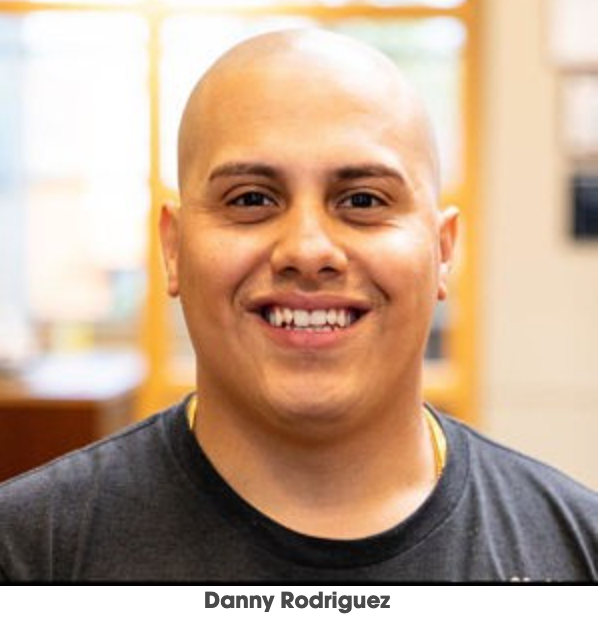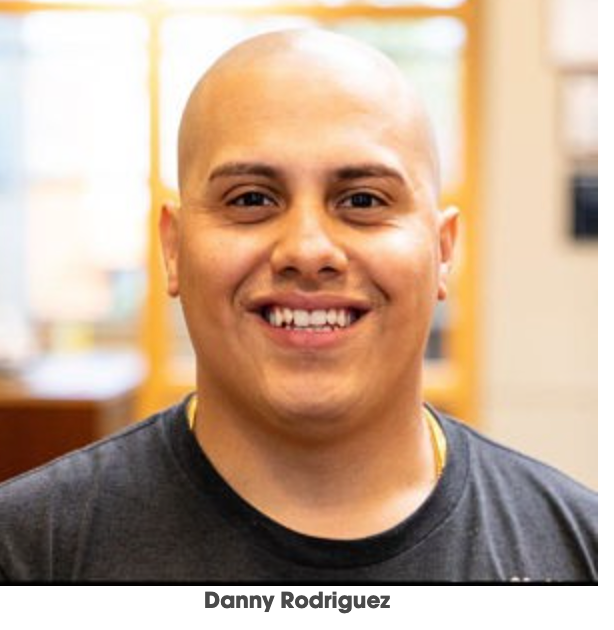https://www.westword.com/news/education-high-school-financial-literacy-op-ed-11910442

It is frustrating to see young people with whom I’ve grown up work just as hard as me and be compensated with burdens rather than freedom. In my work as a branch leader at Canvas Credit Union, our mantra is to support clients in being able to “afford life.” To that I add my personal Tree of Three: Understanding credit, striving toward homeownership and saving for retirement.
I work with amazing people and take great pride in my role in developing my team members. However, I'm most proud of serving my community and helping all walks of life achieve financial success.
I’m writing on behalf of a new organization of DPS alumni called Ednium: The Alumni Collective. We’re on a mission to ensure that every student leaves the public schools with the knowledge, skills and agency to define and achieve success. A key policy initiative right now is requiring that every student completes studies of financial literacy in order to graduate.
My parents immigrated from Mexico in search of a better life — not just for themselves, but for their children. I attended Denver Public Schools (DPS) K-12, graduating from Abraham Lincoln High School in 2009. From a very young age, I watched my parents work hard and save, eventually obtaining a mortgage on a home. On payday, my dad and I would go put money into a savings account, and over the years I saw my savings grow.
I've been able to achieve financial success. I established credit at age 18 and purchased my home at the age of 22 after graduating from Metropolitan State University. I have equity in my property — I’ve seen it more than double in value, and I have insurance policies on my mortgage and life. I was able to achieve this success by empowering myself in financial literacy. The problem is, the majority of my classmates and neighboring community peers can't say the same.
I can very well help, and I have through my work at Canvas and with many of my close peers. But financial literacy should be initiated in school. If we really want to establish equity in education and prosperity in the world we live in today, let's assist our future generations on a path to generational wealth.
We live in an era where young people want to keep up with the "’gram” (Instagram). They may not understand the consequences of not setting financial goals, and end up compromising their power and leverage at a very young age. By the time they want to achieve financial freedom, they are hogtied by debt or bad credit.
When I look back at the ways education opened up doors for me, I give credit to the exceptional teachers I had throughout my years at Knapp Elementary, Kepner Middle School and Lincoln. School Board President Carrie Olson, then a teacher at Kepner, took my eighth-grade class on a life-changing trip to Europe, also making the experience possible through fundraising. A main feature was to visit the Anne Frank House in Amsterdam.
We sold candy and expanded to coffee sales when we saw teachers arriving early in the morning with coffee they picked up at drive-thrus on their way to work. I’d make a few extra bucks helping teachers carry things to their cars. And I’ll never forget coach Rocco Carbone donating generously to get me over the finish line to make the trip possible.
The trip helped me to understand other ways of living, to appreciate that we have opportunities people in other countries don’t, and it made me want to broaden my horizons to want to achieve unlimited success.
It’s our responsibility to assist future generations of students to attain the financial freedom to break the cycle of poverty and be able to realize their aspirations. Economic stress and recessions disproportionately impact communities of color, setting up greater financial and economic challenges for past, current and future students.
Yet during the 2019-’20 school year, only four high schools in DPS offered a financial literacy course, and only 157 students opted to take it — a small fraction of the 5,000 students who graduate every year. The 150 alumni in the first Ednium Design Lab ranked financial literacy as the top set of skills and knowledge missing from their K-12 experience.
Students must be better prepared for the responsibilities and challenges of life after high school. The Board of Education should make financial literacy coursework a requirement for graduation.
Danny Rodriguez is a manager at Canvas Credit Union. A graduate of Abraham Lincoln High School and Metropolitan State University, he is a member of Ednium: The Alumni Collective.
Westword.com frequently publishes op-eds and essays on matters of interest to the Denver community. Have one you'd like to submit? Send it to editorial@westword.com, where you can also comment on this piece — which reflects the opinions of its author, and not of Westword.com.
-1.png?width=180&height=55&name=Ednium%20Email%20(2)-1.png)

